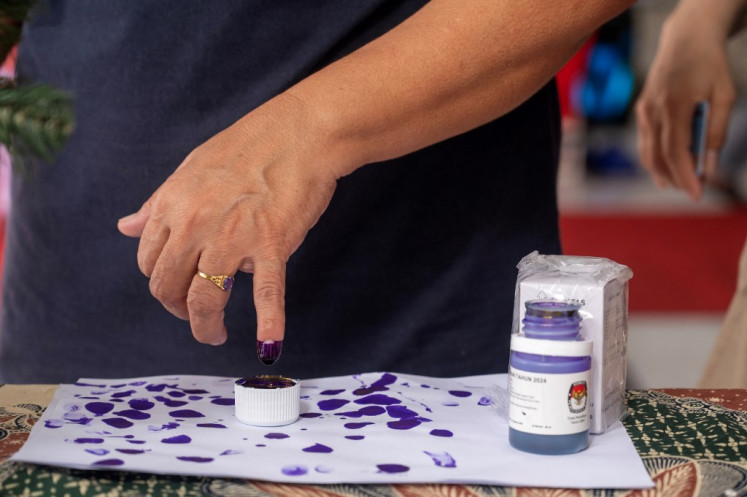Popular Reads
Top Results
Can't find what you're looking for?
View all search resultsPopular Reads
Top Results
Can't find what you're looking for?
View all search resultsPapua better protecting women against HIV/AIDS
Evening wear?: Women discuss a dress made of condoms on display at the venue of the 9th International Congress on AIDS in the Asia-Pacific region (ICAAP) in Nusa Dua, Bali, on Tuesday
Change text size
Gift Premium Articles
to Anyone
E
span class="caption">Evening wear?: Women discuss a dress made of condoms on display at the venue of the 9th International Congress on AIDS in the Asia-Pacific region (ICAAP) in Nusa Dua, Bali, on Tuesday. JP/R. Berto Wedhatama
Papua has intensified its campaign promoting the use of female condoms, after reports emerged of an increase in HIV/AIDS infections among residents.
Papua HIV/AIDS Commission (KPA) chairman Constant Karma said his organization had worked with local NGOs and large corporations to distribute female condoms to more than 265,000 women.
Recipients had included women from high-risk groups including sex workers.
Mothers and housewives were targeted, because there had been an increase in HIV/AIDS infections among housewives over the past two years, Constant said at a press conference on the sidelines of the 9th International Congress on AIDS in Asia and the Pacific (ICAAP), here Tuesday.
"We will continue working in the domestic sector as we do in entertainment centers and red-light districts - by promoting the use of female condoms.
"Otherwise the province will face an AIDS explosion within the immediate future," Constant said.
The KPA has no recent statistics on HIV/AIDS in Papua, but according a 2006 survey, 2.4 percent of the province's population of 2.2 million were HIV positive at that time.
Previous campaigns to promote safe sex had largely targeted sex industry workers, and subsequently now there was an increase of HIV infections among people outside that group, Constant said.
According to the same data, Papua had the second highest prevalence of HIV/AIDS, after West Java.
A number of observers have said that the real number of people living with HIV/AIDS was in fact higher than official data suggests, since many people were ashamed to admit they were living with HIV/AIDS.
Constant, who is also the former vice governor of Papua, thanked the provincial government and Governor Barnabas Suebu for their efforts in the fight against HIV/AIDS.
Constant said in Papua the gender gap was largely to blame for the spread of HIV/AIDS, because under Papua's feudal traditions men are allowed to do anything, including infecting women.
Alcoholism and unsafe sex among younger generations had also contributed to the spread, he said.
Victor C. Mambor, the coordinator of Stop AIDS Now! Papua group, which works to provide advocacy for people living with HIV/AIDS, said the gender gap made it difficult for women, including housewives, to uphold their sexual rights.
"The weak promotion of women's rights leaves them with no bargaining power in facing men, and this has contributed to the increasing prevalence *of HIV/AIDS* among housewives.
"That is why we have started to involve men in our anti-AIDS campaign," he said.
Jayapura Social Development Foundation (YPDM) director Tahi G. Butar-butar said his organization was working was encouraging the involvement of men in an effort to close the gender gap and dispel myths that HIV/AIDS was transmitted by women alone.
"The promotion of female condoms among sex workers and housewives will give women more bargaining power ... while simultaneously reducing the spread of HIV/AIDS," he said.
"The anti-AIDS campaign and sex education will also be included in the education curriculum at high schools and universities," Tahi said.










